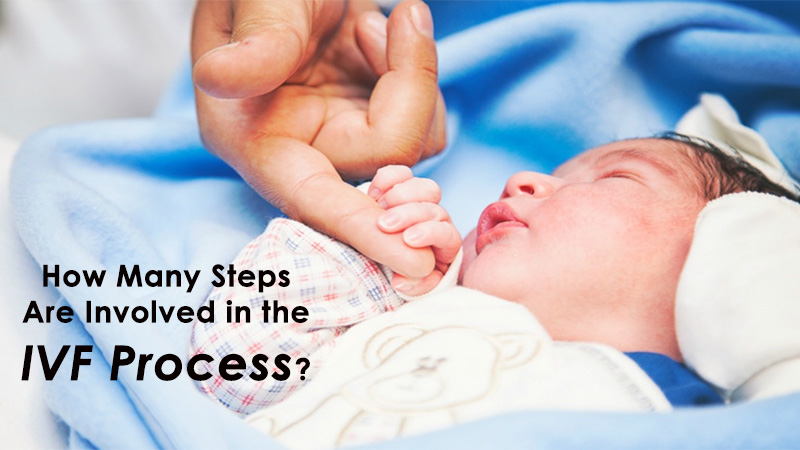How Many Steps Are Involved in the IVF Process?
Have you debated getting help from a fertility specialist if you’re struggling to conceive naturally?
One of the most popular fertility treatments in the UK is IVF; a process where the egg and sperm are fertilised in a lab, and only the highest-quality embryos are implanted. This gives couples (or single women) a fantastic chance at becoming parents.

Couples who have unsuccessfully tried a range of treatments – or women with fertility problems such as blocked fallopian tubes – may want to try IVF.
In this article, you’ll learn the five key steps of a typical IVF cycle, so you can determine whether this fertility treatment is the one for you.
How long does IVF take to get pregnant?
A complete cycle of IVF can take anywhere between four to six weeks before a positive pregnancy test. This is because there are various stages before the embryo is implanted, but this timescale could differ, depending on your personal circumstances.
For example, women with fertility issues may find that the IVF procedure takes longer as their specialist may need to investigate why.
A rundown of the IVF procedure
Are you wondering whether IVF is the perfect fertility treatment for you? Whether you’re opting for private IVF or choosing to have the procedure done through the NHS, this is what the procedure usually entails:
1. Initial consultation with a fertility specialist
The first step in the IVF process is to meet with a fertility specialist.
In your first consultation, your specialist will be able to answer questions you may have about the procedure. They’ll also discuss your overall health – and previous fertility issues, if you’ve had them – to give an accurate prediction on whether IVF will be successful.
2. Stimulation of the ovaries
After meeting with your IVF specialist, you’ll arrange a session for your ovaries to be stimulated.
A relatively simple (and pain-free!) process, this helps your fertility doctor to assess the number and size of the follicles in your ovaries and give you a better understanding of your IVF success rate.
During this stage, you will also be given an injection to mature the eggs, and make sure they’re ready for fertilisation.
3. Retrieval of the eggs
Once the eggs have matured inside the ovaries, a specialist doctor will retrieve them. You will be sedated at this stage to ensure you’re not in any pain.
4. Fertilisation of the egg
After the eggs have been retrieved, an embryologist will closely look at them under a microscope. They’ll select the highest-quality eggs and use these in the fertilisation process.
These eggs will be combined with sperm (either from your partner or a sperm donor), and carefully monitored over the next few days.
If your egg has been fertilised and an embryo has begun to grow, your embryologist will call with the good news!
5. Transferring the embryo
At this appointment, you’ll meet with your consultant who will transfer the embryo to your womb.
This rarely requires anaesthetic and will be transferred using a small plastic tube through the cervix.
You’ll then be discharged from the clinic and advised to take a pregnancy test in two weeks’ time to learn if the IVF process has been successful.
Hopefully, this article has eased your concerns surrounding the IVF procedure, and how long it takes. If you’d like to learn more about IVF and assess whether it would be the perfect fertility treatment for you, contact a fertility specialist today.


